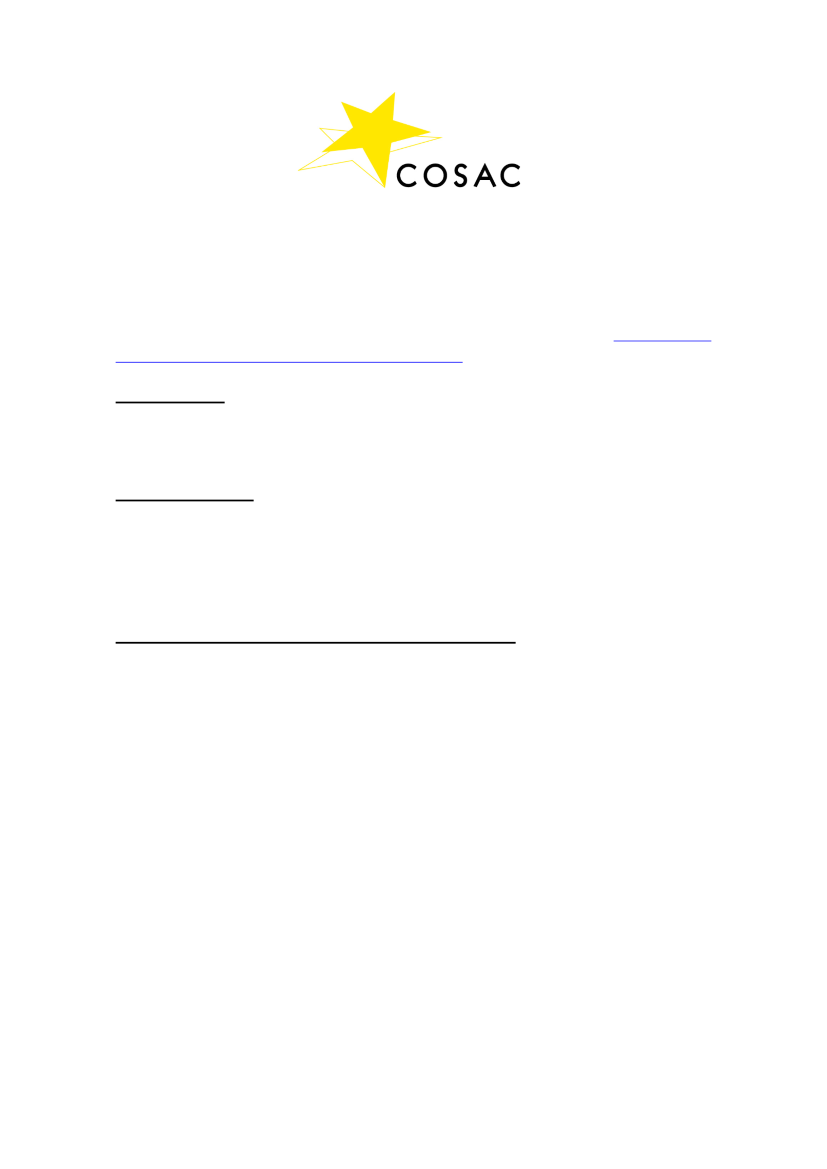
MINUTES OF THE MEETING OF THE CHAIRPERSONS OF COSAC
B
UDAPEST
, H
UNGARY
, 28 - 29 J
ULY
2024
Note:
The text of keynote interventions which have been shared with the Presidency will be
published on IPEX. A video recording of the full meeting is available via the
webpage of the
Parliamentary Dimension of the Hungarian Presidency.
P
ROCEEDINGS
IN THE CHAIR: Mr Zoltán TESSELY, Chairman of the Committee on European Affairs,
Hungarian
Országgyűlés.
O
PENING
S
ESSION
Opening remarks
Mr István JAKAB, Deputy Speaker of the Hungarian
Országgyűlés
held an opening keynote
intervention welcoming delegations to Budapest. The English translation of the speech is
accessible on IPEX.
P
ROCEDURAL ISSUES AND MISCELLANEOUS MATTERS
Mr TESSELY briefly presented the draft agenda for the meeting, which then was adopted
without any remarks. He went on to present the results of the meeting of the Presidential Troika
of COSAC. He noted that the Troika had approved the agenda for the Meeting of the
Chairpersons of COSAC, the Outline of the 42nd Bi-annual Report, as well as discussed the
draft programme for the LXXII COSAC Plenary Meeting. The letters received by the
Presidency had been presented to the Troika. He then went on to present the draft programme
for the LXXII COSAC Plenary Meeting to the delegations.
Mr TESSELY welcomed the delegates attending the Meeting of the Chairpersons of COSAC
for the first time: Mr Telmo FARIA, Chair of the European Affairs Committee of the
Portuguese
Assembleia da República,
Ms Mirela FURTUNĂ, Chair of the Committee on
European Affairs of the Romanian
Camera Deputaților,
Mr Peter De ROOVER, Speaker of
the House and Chair of the Advisory Committee on European Affairs of the Belgian
Kamer
van Volksvertegenwoordigers/Chambre des représentants
and Mr Younous OMARJEE, Vice
President of the European Parliament.
He furthermore informed delegations about letters received by the Presidency, noting that
requests to attend the Meeting of the Chairpersons of COSAC had been sent from the
Kuvendi